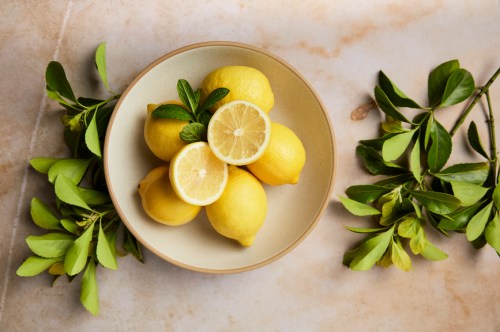Our editors independently select these products. Making a purchase through our links may earn Well+Good a commission
When life gives you lemons, you make lemonade—that is, if and only if your lemons aren’t sitting there sneakily molding away in your citrus bowl. Much like the expression “one bad apple spoils the bunch,” many of us know all too well that a rotting lemon can quickly ruin your entire supply in the blink of an eye if you don’t store them properly.
Experts in This Article
Jessica Alferos is the sous chef at Spago in Beverly Hills.
creator of Hello Nutritarian and author of Fridge Love
UK-based food scientist and CEO of Nali Consulting
Preserving lemons for as long as possible comes down to understanding a few basics of food science, but rest assured that the method is beyond simple. Before yet another innocent piece of fruit makes its way into your garbage can or compost bin, we have a simple trick for keeping your lemons fresh for an entire month (yes, really). Care to help #savethelemons? Read on for the best way to store lemons according to a food scientist and a chef.
How To Store Lemons, According to a Food Scientist
Storing citrus might seem like an afterthought once you get home from the grocery store. After you’ve exhausted your efforts reorganizing the fridge to fit everything from your shopping spree, tossing lemons into a citrus bowl and leaving them out on the counter might seem like no big deal. However, after speaking with Natalie Alibrandi, a London-based food scientist and CEO of Nali Consulting, we quickly learned that this simple act has been robbing our citrus fruits of their full freshness potential.
1. Keep them in the fridge, not on the countertop
“If you want to keep your lemons fresh, it’s best recommended to keep them in the fridge—and better yet, in the crisper drawer,” Alibrandi says. Indeed, all those cooking shows featuring immaculate, highly-stylized kitchen countertops piled high with fresh lemons and limes totally led us astray on this one (…but still love you the most, Ina and Martha).
“Lemons that are left on the countertop, especially if they are close to bananas or other ethylene-producing fruits, can ripen much faster,” Alibrandi adds. According to the pros at Cook’s Illustrated who tested the shelf-life of lemons kept out on the countertop versus in the fridge, the fruits that were stored at room temperature expired after one week. The refrigerated lemons, however, stayed ripe and juicy for four times that span: an entire month.
The eye-opening discovery that lemons stay fresh comes down to food science. “Fruits naturally ripen slower in the fridge as the cooler temperature slows everything down,” says Alibrandi. For optimal preservation conditions, the USDA recommends maintaining the refrigerator at about 40°F, as “bacteria capable of causing foodborne illness either don’t grow or grow very slowly at refrigerator temperatures.”
2. Rinse, dry, and seal lemons in an airtight resealable bag before they go in the fridge
At high-volume restaurants like Spago in Beverly Hills, keeping lemons fresh is always a top priority. “We use tons of lemons, so we go through them a lot and reserve them for zesting, juicing, and garnishing dishes,” sous chef Jessica Alferos says. The point? She clearly knows a thing or two about how to store lemons for as long as possible. When at home, Alferos recommends first rinsing and drying lemons to eliminate any potential bacteria (or moisture) that could be present on the fruit, and then wrapping them in an airtight resealable bag to prevent them from drying out. According to Alferos, a refrigerator’s cooling fans create an arid environment inside the fridge, which can mean premature aging if you skip out on wrapping your lemons in a baggie before chilling them.
3. And don’t forget to store your lemons in the crisper drawer
Why the crisper drawer, you may ask? Crisper drawers have their own separate airflow system or temperature controls, making them a colder zone with more humidity, which is ideal for keeping produce fresh, Kristen Hong, author of the book Fridge Love, previously told Well+Good. So, the next time you’re ready to make a calming lemon water before bed drink, your citrus will be fresh and ready to use.
For a gut-healthy and gluten-free way to use all those fresh lemons you’re about to have, bake this delicious lemon loaf recipe:
Oh hi! You look like someone who loves free workouts, discounts for cutting-edge wellness brands, and exclusive Well+Good content. Sign up for Well+, our online community of wellness insiders, and unlock your rewards instantly.
Sign Up for Our Daily Newsletter
Get all the latest in wellness, trends, food, fitness, beauty, and more delivered right to your inbox.
Got it, you've been added to our email list.











